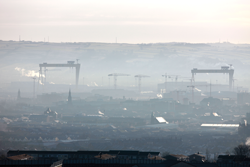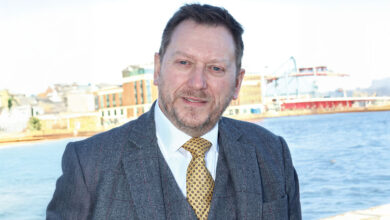Rising joblessness
 MLAs and business leaders are seeking bolder action after unemployment rose by 8,000 in three months.
MLAs and business leaders are seeking bolder action after unemployment rose by 8,000 in three months.
Rising joblessness has prompted calls for an urgent re-think of the Executive’s economic policies. The official measure of unemployment in Northern Ireland rose by 0.9 percentage points to reach 7.6 per cent in April-June 2012. This represents 66,000 people out of work, a rise of 8,000 over the last quarter.
In the opposite direction, overall UK unemployment went down by 0.2 per cent to 8.0 per cent. Labour, though, has pointed out that 90 per cent of the fall took place in London: a by-product of the Olympics.
The long-term unemployed (out of work for one year or more) represented 44.4 per cent of the unemployed population. Long-term unemployment was down by 3.7 per cent over the year, but this may be explained by a larger number of new claimants signing on. Youth unemployment stood at 22.3 per cent: up 5.3 per cent over the year.
Economic inactivity, a larger but less reported factor in the labour market, remained the highest in the UK at 27.3 per cent, down 0.2 per cent over the quarter. This category covers people in a range of circumstances who fall within the working age population (16-64 years) but are not looking for work. Most are studying, ill or disabled, looking after family at home or retired.
An estimated 10 per cent (57,000 people) did want to work but were either not actively seeking work or were not available to start a job. They therefore fall outside the standard definition of unemployment, but would be considered unemployed by the general population. This cohort is important as it includes people who had been looking for work but have since given up on finding a job.
Enterprise Minister Arlene Foster promised to redouble efforts to tackle unemployment and set the figures in a context of falling UK output and weak external demand. Sinn Féin MLA Phil Flanagan insisted that the Executive must take forward all-island co-operation on agri-food and tourism.
SDLP leader Alasdair McDonnell also saw “very substantial opportunities” in food production and export and “extensive scope” in adopting the Green New Deal. UUP Economy Spokeswoman Sandra Overend called on ministers to identify areas for potential growth and “aggressively” implement action plans. Conservative spokesman Johnny Andrews suggested that ministers implement enterprise zones (already used across Britain) and provide rates relief to exporters.
The CBI reiterated its call for devolving corporation tax and asked the Executive to accelerate capital spending in this financial year. NIIRTA Chief Executive Glyn Roberts proposed a Small Business Growth Bill, to liberalise employment law and extend rates relief. The trade union movement questions the effectiveness of SMEs in creating jobs and instead recommends more job creation by larger employers.





